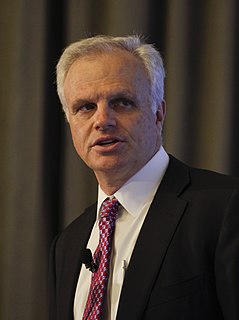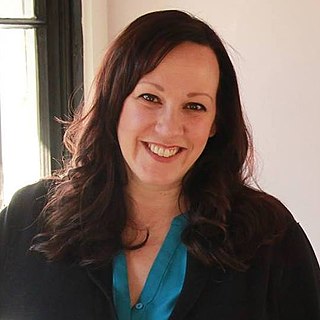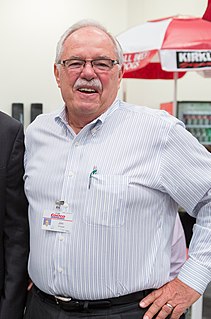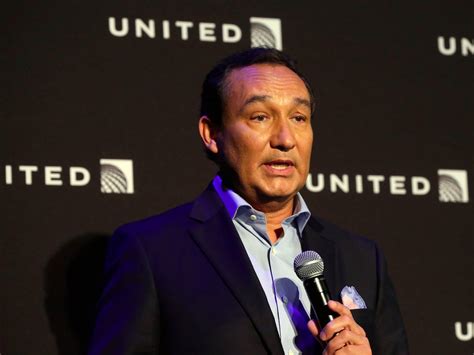A Quote by David Neeleman
Our people get profit-sharing checks. I got a report the other day that says that 84 percent of our people participate in our stock purchase program, where they can buy stock at a 15 percent discount.
Related Quotes
Driving stock up from one day to the next is not what we are about. We are about building a good company and performing for the long term. I know everyone says that, that sounds trite when I repeat it that way, but that is and has always been our attitude about our business. If we do the right things, the stock price will take care of itself, and our shareholders will be rewarded.
I helped start a ceramics company called CPS Technologies. We took it public in 1987 at $12 a share. Three months later, there was this horrible cliff: Black Monday. Fidelity had bought 15 percent of our stock, and their algorithm caused them to dump it all onto the market that day. We dropped from $12 to $2.
Our lives are now in a telephone, all our data, all our finances, all our personal information, and so it's proper that we have some constraints on that. But it's not going to be 100 percent. If it is 100 percent, then we're not going to be able to protect ourselves and our societies from some people who are trying to hurt us.
Over the long term, it's hard for a stock to earn a much better return that the business which underlies it earns. If the business earns six percent on capital over forty years and you hold it for that forty years, you're not going to make much different than a six percent return - even if you originally buy it at a huge discount. Conversely, if a business earns eighteen percent on capital over twenty or thirty years, even if you pay an expensive looking price, you'll end up with one hell of a result.
Unfortunately our stock is somehow not well understood by the markets. The market compares us with generic companies. We need to look at Biocon as a bellwether stock. A stock that is differentiated, a stock that is focused on R&D, and a very-very strong balance sheet with huge value drivers at the end of it.
Unfortunately, our stock is somehow not well understood by the markets. The market compares us with generic companies. We need to look at Biocon as a bellwether stock. A stock that is differentiated, a stock that is focused on R&D, and a very, very strong balance sheet with huge value drivers at the end of it.
In 2013, Samsung accounted for about 20 percent of South Korea's total business profits. Samsung Electronics, just one of scores of subsidiaries, accounts for close to 15 percent of the total shares in the South Korean stock market. But you don't need to know these figures to get a feel for Samsung's hold on the country.
At the end of the day, the differential, I believe, on the airline space has got to be about the product and the service that you provide. And again, I can't express that enough. That comes from people. It is a people business, and my primary focus is to get our 84,000-plus people back aligned, back engaged, and back focused on our customer.
A price drop in a good stock is only a tragedy if you sell at that price and never buy more. To me, a price drop is an opportunity to load up on bargains from among your worst performers and your laggards that show promise. If you can't convince yourself "When I'm down 25 percent, I'm a buyer" and banish forever the fatal thought "When I'm down 25 percent, I'm a seller," then you'll never make a decent profit in stocks.

































